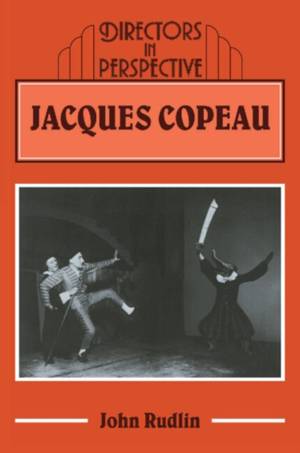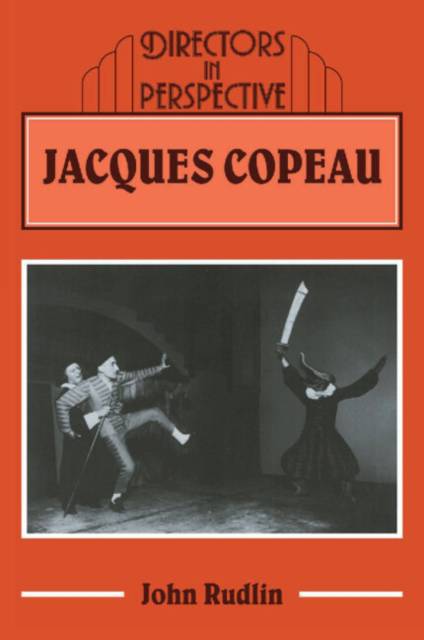
Door een staking bij bpost kan je online bestelling op dit moment iets langer onderweg zijn dan voorzien. Dringend iets nodig? Onze winkels ontvangen jou met open armen!
- Afhalen na 1 uur in een winkel met voorraad
- Gratis thuislevering in België vanaf € 30
- Ruim aanbod met 7 miljoen producten
Door een staking bij bpost kan je online bestelling op dit moment iets langer onderweg zijn dan voorzien. Dringend iets nodig? Onze winkels ontvangen jou met open armen!
- Afhalen na 1 uur in een winkel met voorraad
- Gratis thuislevering in België vanaf € 30
- Ruim aanbod met 7 miljoen producten
Zoeken
€ 60,95
+ 121 punten
Uitvoering
Omschrijving
This is an assessment of the work and influence as a director of Jacques Copeau (1879-1949), who has long been regarded as one of the fathers of twentieth-century French theatre. Along with Antoine and his own pupils Dullin and Jouvet, Copeau is known to have been instrumental in restoring the traditional values of theatre at the same time as seeking, through training and experiment, a vital contemporary function. The work of Brook's company and research centre in Paris today is, for example, in direct descent from that of Copeau. John Rudlin examines the course of Copeau's directorial career, concentrating on his techniques in rehearsal and performance, charting his relationships with those who collaborated and worked with him, and elucidating his ideas of theatre. This book will interest all scholars and students of twentieth-century drama, and will also be of use to theatre practitioners.
Specificaties
Betrokkenen
- Auteur(s):
- Uitgeverij:
Inhoud
- Aantal bladzijden:
- 160
- Taal:
- Engels
- Reeks:
Eigenschappen
- Productcode (EAN):
- 9780521273039
- Verschijningsdatum:
- 25/07/1986
- Uitvoering:
- Paperback
- Formaat:
- Trade paperback (VS)
- Afmetingen:
- 152 mm x 229 mm
- Gewicht:
- 244 g

Alleen bij Standaard Boekhandel
+ 121 punten op je klantenkaart van Standaard Boekhandel
Beoordelingen
We publiceren alleen reviews die voldoen aan de voorwaarden voor reviews. Bekijk onze voorwaarden voor reviews.











